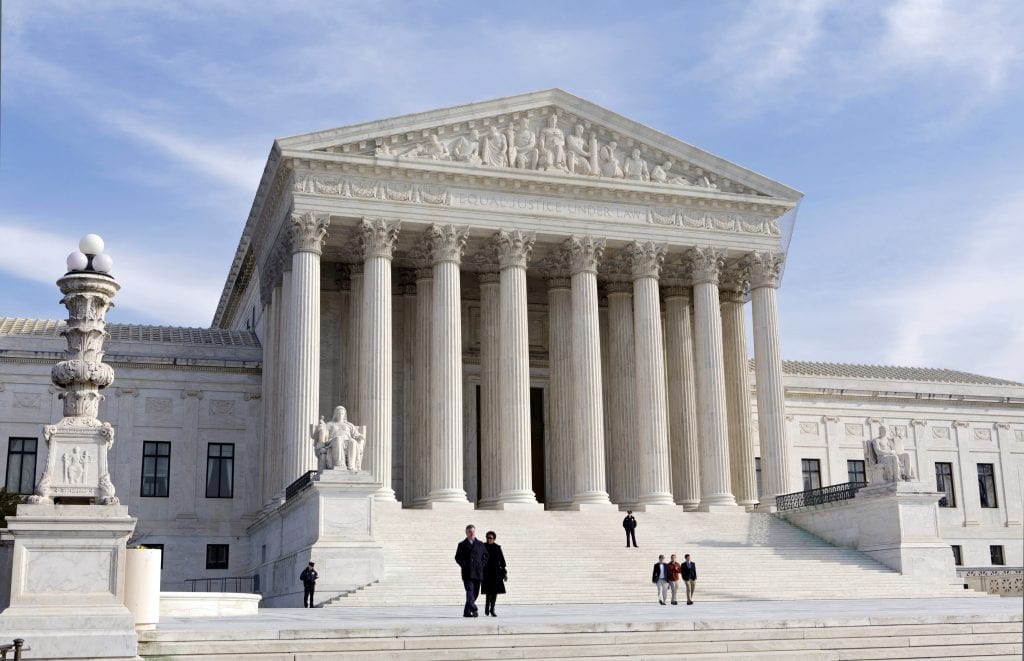Let’s explore some of the most interesting stories that have emerged from Chicago business schools this week.
Supreme Court Justices Become Less Impartial and More Ideological When Casting the Swing Vote – Kellogg Insights
In a new paper coauthored by Northwestern Kellogg Associate Professor of Managerial Economics and Decision Sciences Jörg Spenkuch and Emory University’s Tom S. Clark and B. Pablo Montagnes, the trio found that “the effect of a justice’s ideology on how he or she votes essentially doubles when the vote is pivotal.”
Spenkuch explains, “”Our idea of a good judge is that of an impartial umpire. But justices in some cases disregard the role of the umpire in favor of that of the politician.”
“During confirmation hearings, no justice ever admits that they’re interested in making policy. There is a nontrivial number of cases that would be decided differently if justices did not vote strategically. It draws into doubt the notion of the Supreme Court as an institution where litigants come to get justice.”
You can read more about the trio’s research here.
Sidestepping the Pitfalls of Overconfidence with Plausible Deniability – Mendoza Ideas & News
In Notre Dame University Mendoza College of Business postdoctoral Research and Teaching Associate Nathan Meikle’s forthcoming Journal of Personality and Social Psychology paper, he illuminates how people in positions of power—politicians, business leaders—can successfully toe the line between confidence and arrogance.
According to the article, “expressing confidence non-verbally through making eye contact, gesturing, adopting an expansive posture or speaking in a strong voice allows people to enjoy the social benefits of expressing confidence while simultaneously reducing the risk they’ll be punished for overconfidence.”
The key is to leverage plausible deniability — “the ability to deny responsibility due to a lack of concrete evidence.”
Meikle explains, “The plausible deniability hypothesis explains why overconfidence sometimes, but not always, is punished. For example, verifiably overconfident claims, void of plausible deniability, will face consequences. However, there are a number of ways people can create plausible deniability.”
“Future claims necessarily enjoy some degree of plausible deniability because they cannot be proven wrong in the moment,” Meikle continues. “Thus, individuals boasting about future events would be expected to enjoy the benefits of expressing confidence while simultaneously sidestepping the potential costs. However, even if overconfident claims are eventually proven false, people can still create plausible deniability by undermining the messenger, such as calling it ‘fake news.’”
“One strategy is to make audacious claims about future events. President Trump frequently makes bold claims, such as he alone can bring coal mining jobs back to West Virginia,” Meikle explains / Photo via DOMINICK REUTER/AFP/Getty Images
You can read the full article from Mendoza Ideas & News here. “Is Overconfidence a Social Liability? The Effect of Verbal Versus Nonverbal Expressions of Confidence” is also available here.
Hurricane Victims Face Long, Uncertain Road to Recovery – Gies College of Business Blog
U. Illinois Gies College of Business Professor of Finance Tatyana Deryugina, who studies the financial impacts of natural disasters on families, explains that “even after the floodwaters recede … families displaced by Hurricane Florence will face months and months of financial hardship.”
Deryugina explains, “If you have kids, there’s the school closures—so parents might have to figure out what to do with their children in the meantime. Even if your workplace is open, you may not be able to go back and work. Building materials will be expensive in the short-term. A lot of people rebuilding causes supply issues.”
“Even if you rebuild, and it looks nice and new, people are going to remember this event. Not only are you going to face building and repair costs, but now your home is worth less than it was before”
She adds, “What we’re seeing with Florence is rivers overflowing, which is worse than just having the floodwater accumulate from the heavy rain because that’s going to be longer-lasting.”
“New Orleans was below sea level, so the flooding just persisted. The longer areas stay uninhabitable, the more people are going to leave and just not return. If you’re somewhere for a couple months, it becomes much easier to stay there.”
You can read the full article here.
